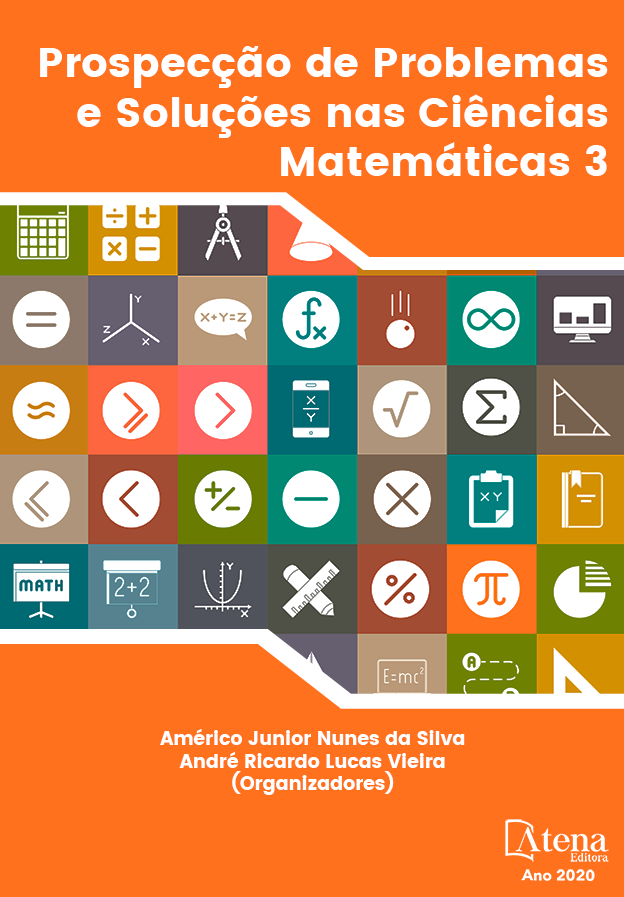
MATEMÁTICA E SOCIEDADE NO MUNDO MULTIDIMENSIONAL DA PLANOLÂNDIA, DE EDWIN ABBOTT
O presente trabalho foi desenvolvido, no primeiro trimestre de 2019, por um grupo de alunas do segundo ano do Curso Técnico de Edificações Integrado ao Ensino Médio do Instituto Federal do Espírito Santo – Ifes, Campus Vitória, com a orientação e participação de uma professora de Matemática do Instituto. A pesquisa foi motivada pelo desejo de explorar a matemática fora da sala de aula e trazê-la para outros contextos, a exemplo da Feira de Matemática realizada durante a 8ª Semana de Matemática do Ifes (Semat), no Campus Vitória. Com este, pretende-se mostrar, por meio da compreensão dos conceitos de dimensões, planos e retas, como a matemática pode ser trazida para o meio social, denunciando comportamentos típicos da sociedade em que vivemos. As principais referências tomadas no trabalho são Abbott (2002) e Singh (2013), ambas mostram uma realidade na qual os indivíduos vivem em um mundo plano, de apenas duas dimensões. As obras evidenciam como a concepção de uma outra dimensão é algo “irreal” e encarado com relutância pelos personagens, dado que uma mudança de realidade não parece atrativa a uma população que está confortável demais para questionar o sistema. A análise das obras levou à elaboração dos recursos para a abordagem do tema na Feira de Matemática: dinâmicas com auxílio de materiais manipuláveis para que os visitantes pudessem experimentar a sensação de viver na Planolândia, o mundo bidimensional da obra de Abbott, e compreender características do conceito matemático de dimensão, ainda pouco explorado e possivelmente desconhecido para alunos de Educação Básica. O estudo realizado teve, por conseguinte, a conclusão de que há ainda muito o que explorar futuramente em como a matemática pode ser usada para denunciar fatos sociais e como sempre é possível alcançar novos conhecimentos para além daquilo que já se mostra claro e difundido.
MATEMÁTICA E SOCIEDADE NO MUNDO MULTIDIMENSIONAL DA PLANOLÂNDIA, DE EDWIN ABBOTT
-
DOI: 10.22533/at.ed.5762008095
-
Palavras-chave: Planolândia, Dimensões, Sociedade, Matemática
-
Keywords: Flatland, Dimensions, Society, Mathematics
-
Abstract:
This study was developed, in the first trimester of 2019, by a group of students from the second year of the Technical Course in Buildings Integrated to High School at the Federal Institute of Espírito Santo - Ifes, Vitória Campus, with the guidance and participation of a professor of Mathematics from the Institute. The research was motivated by the desire to explore mathematics outside the classroom and bring it to other contexts, for example the Mathematics’ Fair held during the 8th Ifes’ Mathematics Week (Semat), at Vitória Campus. With this, it is intended to present, by understanding the concepts of dimensions, plans, and lines, how mathematics can be brought to the social environment, denouncing typical behaviors of the society we live in. The main references taken at the study are Abbott (2002) and Singh (2013), both show a reality in which individuals live in a flat world, with only two dimensions. The works evidence how the conception of another dimension is something "unreal" and viewed with reluctance by the characters, given that a change in reality does not seem attractive to a population that is too comfortable in order to question the system. The analysis of the works led to the elaboration of resources to approach the theme at the Ifes’ Mathematics Fair: dynamics with the support of manipulable materials so that visitors could experience the feeling of living in Flatland, the bidimensional world of Abbott’s work, and also understand characteristics of the mathematical concept of dimension, still barely explored and possibly unknown to Basic Education students. The study, therefore, concluded that there is still much more to explore in the future in how mathematics can be used to denounce social facts and how it is always possible to achieve new knowledge beyond what is already clear and widespread.
-
Número de páginas: 9
- Giovanna Fonseca Couto
- Lara Silva Alves
- Luísa Tinoco Thomazini
- Nicole Zuccolotto Viana
- Claudia Alessandra Costa de Araujo Lorenzoni
- Amanda Uneida Vieira


